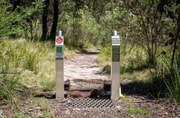Cash crunch: Armaguard's struggle casts shadow on future of physical currency
- Replies 0
In an age where digital transactions are becoming the norm, the fate of physical currency hangs in the balance.
Armaguard, a name synonymous with the movement of cash across Australia, is facing a crisis that could signal a seismic shift in how we think about money.
As the largest currency transport business in the country, servicing about 90 per cent of the cash-in-transit market, Armaguard's struggles, as discussed by Professor Steve Worthington of The Conversation, are a canary in the coal mine for the future of cash.
The Linfox Group-owned company has been a cornerstone of Australian financial transactions for years, ensuring that ATMs are stocked and businesses have the change they need to operate.
However, the rapid decline in cash usage, exacerbated by the pandemic, has left Armaguard in need of a significant financial lifeline to stay afloat.
Despite rejecting a $26 million rescue offer from major banks and retailers, Armaguard has accepted a smaller $10 million package from Linfox, which provides only a temporary reprieve.
The dwindling use of cash is not just a trend in Australia; it's a global phenomenon.
Over the past decade, Australians have increasingly turned to cards and digital wallets, leading to a 57 per cent decline in cash payments since 2017.
This shift has had a profound impact on the infrastructure supporting cash, with a 37 per cent reduction in bank branches and a dramatic fall in the number of bank-owned ATMs.
The cost of moving cash, always a logistical challenge given Australia's vastness, has become even more prohibitive.
The Reserve Bank of Australia (RBA) has warned of a 'cash-use cycle' where the decline in cash could make it uneconomic to provide cash services in some areas, particularly regional ones.
This presents a significant concern for the RBA, which sees cash as an essential store of wealth and a backup payment method when electronic systems fail.
The RBA's interest in maintaining cash access led to discussions about a cooperative model, similar to those in Europe, where banks could collectively manage cash distribution.
The UK's Link network is one such example, a not-for-profit organisation that ensures cash withdrawal access across nearly all ATMs in the country.
Looking abroad, Sweden's journey towards becoming a cashless society has not been without its challenges, too.
With the Scandinavian country being one of the world’s most cashless societies, the Riksbank, Sweden's central bank, has called for legislation to protect cash transactions, highlighting the risks of digital and financial exclusion.
The Riksbank's concerns about a single private company handling all cash-in-transit services in Sweden underscore the potential vulnerabilities in such a system.
As discussions intensify about the possibility of transitioning to a cashless society, advocates are raising concerns about the implications for certain segments of the population, particularly seniors.
Many fear that such a shift could marginalise those who rely on cash for their daily transactions, potentially excluding them from essential services.
These concerns have prompted calls for nationwide action, with advocates organising campaigns to protest against the move towards a cashless society.
In a bold move to send a clear message, cash activists recently made headlines by withdrawing over $500,000 from ATMs across the country.
Their actions aim to highlight the importance of preserving access to cash and ensuring financial inclusion for all members of society.
 What are your thoughts on the decline of cash? Have you found yourself using less physical money over the years? Share your experiences and opinions with us in the comments below.
What are your thoughts on the decline of cash? Have you found yourself using less physical money over the years? Share your experiences and opinions with us in the comments below.
Armaguard, a name synonymous with the movement of cash across Australia, is facing a crisis that could signal a seismic shift in how we think about money.
As the largest currency transport business in the country, servicing about 90 per cent of the cash-in-transit market, Armaguard's struggles, as discussed by Professor Steve Worthington of The Conversation, are a canary in the coal mine for the future of cash.
The Linfox Group-owned company has been a cornerstone of Australian financial transactions for years, ensuring that ATMs are stocked and businesses have the change they need to operate.
However, the rapid decline in cash usage, exacerbated by the pandemic, has left Armaguard in need of a significant financial lifeline to stay afloat.
Despite rejecting a $26 million rescue offer from major banks and retailers, Armaguard has accepted a smaller $10 million package from Linfox, which provides only a temporary reprieve.
The dwindling use of cash is not just a trend in Australia; it's a global phenomenon.
Over the past decade, Australians have increasingly turned to cards and digital wallets, leading to a 57 per cent decline in cash payments since 2017.
This shift has had a profound impact on the infrastructure supporting cash, with a 37 per cent reduction in bank branches and a dramatic fall in the number of bank-owned ATMs.
The cost of moving cash, always a logistical challenge given Australia's vastness, has become even more prohibitive.
The Reserve Bank of Australia (RBA) has warned of a 'cash-use cycle' where the decline in cash could make it uneconomic to provide cash services in some areas, particularly regional ones.
This presents a significant concern for the RBA, which sees cash as an essential store of wealth and a backup payment method when electronic systems fail.
The RBA's interest in maintaining cash access led to discussions about a cooperative model, similar to those in Europe, where banks could collectively manage cash distribution.
The UK's Link network is one such example, a not-for-profit organisation that ensures cash withdrawal access across nearly all ATMs in the country.
Looking abroad, Sweden's journey towards becoming a cashless society has not been without its challenges, too.
With the Scandinavian country being one of the world’s most cashless societies, the Riksbank, Sweden's central bank, has called for legislation to protect cash transactions, highlighting the risks of digital and financial exclusion.
The Riksbank's concerns about a single private company handling all cash-in-transit services in Sweden underscore the potential vulnerabilities in such a system.
As discussions intensify about the possibility of transitioning to a cashless society, advocates are raising concerns about the implications for certain segments of the population, particularly seniors.
Many fear that such a shift could marginalise those who rely on cash for their daily transactions, potentially excluding them from essential services.
These concerns have prompted calls for nationwide action, with advocates organising campaigns to protest against the move towards a cashless society.
In a bold move to send a clear message, cash activists recently made headlines by withdrawing over $500,000 from ATMs across the country.
Their actions aim to highlight the importance of preserving access to cash and ensuring financial inclusion for all members of society.
Key Takeaways
- Armaguard, Australia's largest currency transport business, is struggling due to a sharp decline in cash usage exacerbated by the pandemic.
- The company recently declined a $26 million rescue offer from banks and retailers, instead opting for a smaller $10 million lifeline from its parent company, Linfox.
- The Reserve Bank of Australia placed high importance on maintaining cash as a secure payment and store of wealth option, potentially considering a cooperative model for cash distribution.
- International examples, such as Sweden's cashless society issues, suggested that the maintenance of cash services might require legislation or central bank and government intervention to ensure financial inclusion and system resilience.








